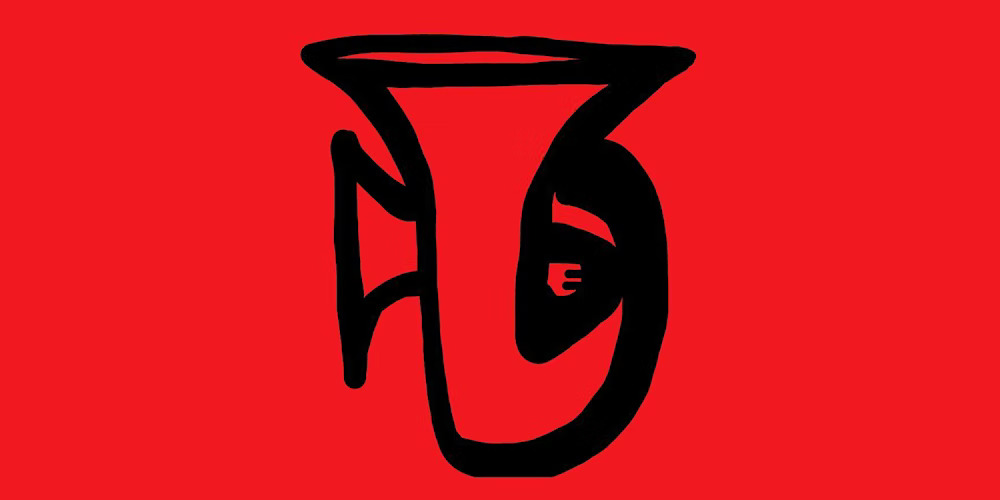Content Warning: Depictions and mentions of suicide
It’s 1928 in Soviet Russia. Semyon Semyonovitch Podsekalnikov is poor, unemployed, and about to commit suicide. As he puts the gun to his head, the audience erupts with laughter.
Tuesday Night Café Theatre’s production of Nikolai Erdman’s Russian Farce: The Suicide, directed by Carmen Mancuso (U2 Arts), begins with a domestic scene: Semyon (Henry Kemeny-Wodlinger, U0 Arts) and his wife Masha (Tessa Lupkowski) live with Masha’s overbearing mother Serafima (Molly McKenzie, U3 Arts). Masha is trying desperately to sleep, but Semyon lies awake, unable to think of anything but sausage.
They begin to argue, and during the ensuing kerfuffle, Semyon casually mentions that he ought to kill himself, an idea with which Masha casually agrees.
Semyon struggles to justify his life in the ensuing scenes until he finally finds something worth living for: The tuba. He believes that becoming a professional tubist will solve his marital woes, lift him out of poverty, and give his life purpose. But after realizing he can’t actually play the tuba, Semyon spirals back into thoughts of ending it all. His smarmy “comrade,” Alexander Petrovich (Matthew Erskine, BA‘22), rushes to profit from the imminent suicide, selling the rights to Semyon’s suicide note to a host of deliciously mercenary characters, all of whom want to use the suicide for their own personal and political gain. Pompous Aristarkh (Max Grosskopf, U3 Arts) wants to claim he died for the Intelligentsia. Vodka-loving Mother Yelpidy (Ava Picquart, U1 Arts) wants to use his death for religious legitimacy and influence.
Although the play is very funny (at one point, Semyon wakes up at home and, thinking he has died, assumes he must be in hell because his mother-in-law is there), it does not trivialize suicide. Rather, the show’s comedic nature makes the moments where the laughter falls silent all the more chilling.
“The play’s never making fun of suicide, it’s never thinking that suicide is this light and easy thing,” Mancuso said in an interview with The McGill Tribune. “It becomes so much heavier, you just become so much more invested.”
From the endearing Semyon’s dopey expressions, the libidinous Alexander having to zip up his fly every time he walked on stage, and the shrillness of Masha’s outbursts, you could tell that everyone involved cared deeply about bringing the story to life. The host of characters trying to exploit Semyon nail the art of acting genuinely ungenuine.
The live band was a definite highlight, performing on stage inches away from the audience. The ensemble’s ability to move in and out of the story itself blurred the lines between performance and production. In one scene, the characters throw a party and the band plays for and interacts with the characters (including a hysterical interaction between Semyon and the play’s actual tubist).
“I think what’s so brilliant about the play is that it’s very clever in the way it uses comedy, it uses farce, it uses all the jokes and comic moments,” Mancuso said. “[I]t brings the audience to empathize, and connect with, and feel with these characters in a way that you wouldn’t normally have the opportunity to.”
In contrast to the lighthearted approach to the play’s contents, the backstory of the play is not as funny. Erdman was arrested in 1933 for his inflammatory work, then exiled to Siberia. Vsevolod Meyerhold, the play’s original director, was eventually tortured and executed during the Great Terror, along with his wife. The play was never even performed until after Erdman’s death.
During the ongoing war in Ukraine, performing Russian plays has become a subject of controversy. But the decision to perform The Suicide is very intentional.
“It gives the opportunity to give a voice to people, and to make you empathize with them, and laugh with them, and have fun with them and have two hours of your evening with people, with characters, in a world that you would never otherwise experience,” Mancuso said.
Nikolai Erdman’s Russian Farce: The Suicide ran from March 8-17 in Morrice Hall.










Well done Kellie,Laurence and I enjoy reading your reviews.
take care-E&L